Trending
Ukraine hopes its incursion into Russia changes outcome of war
Published
5 months agoon
By
Ekwutos Blog
Story by James Waterhouse – Ukraine Correspondent, in the Sumy region
“All wars end with negotiations. It’s not the soldiers in the trenches who decide when.”
Arni joined the Ukrainian army in 2022 to fight for his country’s survival. When we bump into him 30 months later, he describes a new motivation. “Peace.”
“No-one likes war, we want to finish it,” he says while leaning against his camouflaged pick-up truck.
For the troops we encounter close to Russia’s border, there’s a desire to end Russia’s invasion on acceptable terms.
That is not to say survival isn’t a core driver – it is – but they seem to be striving for a finish line.
“For Ukraine, our people, we’ll stand until the end,” adds Arni.
Until 6 August, Ukraine’s sole objective was one of liberation. The complete repelling of Russian forces to its borders from before Russia first invaded in 2014.
Albeit at a grinding pace, the reverse has been happening for the past year-and-a-half with Moscow eroding Ukrainian territory.
Then came the “all in” poker play which surprised everyone apart from the battle-hardened Ukrainian soldiers who carried it out: a counter-offensive into Russia’s Kursk region.

Arni says Ukraine’s military objectives have shifted from survival to peace
© BBC
“It was undeniably successful and daring,” observes Serhii Kuzan, chairman of the Ukrainian Security and Co-operation Centre, a think tank.
Now, Kyiv can’t reference its offensive often enough, with countless pictures of troops giving out aid as they tear down Russian flags.
“It also changes the narrative,” says Alina Frolova, security expert and former deputy defence minister of Ukraine. “A situation where we’re losing territory step by step is not a good one.
“Ukraine’s strategic position has changed.”
Despite parallels with Russia’s initial invasion, Kyiv claims its goal is not to occupy.
So what is the aim? Well, there’s more than one.
Buffer zone
“This attack was partly carried out so the city of Sumy was better protected,” explains Serhii Kuzan, who thinks it is often forgotten that the border is still a front line.
Since the start of this summer, President Volodymyr Zelensky says there were more than 2,000 strikes on the Sumy region from the Kursk region alone, including 250 glide bombs.
For months it was feared Russian troops were preparing for a cross-border attack of their own, and by pushing them back, Serhii believes defending Ukraine in general will be easier.
“The [now captured] Russian city of Sudzha is on a commanding height. The Russians are already in a less advantageous position because we control the approach routes.”
While Russia has had to react to Ukraine on the battlefield, it has also had its supply lines targeted. Key roads have been seized and a strategically important bridge destroyed.
Which leads us to:
The redeployment of Russian forces
“The main purpose of this offensive into Kursk is to divert Russia’s attention from its occupied territories in Ukraine,” says Ivan Stupak, who worked for Ukraine’s security service (SBU) between 2004-2015.
The good news for Ukraine is that is what appears to be happening. The bad news is that Russian advances, notably towards the town of Pokrovsk, are not slowing.
“The Russian army has been redeploying some troops from different directions – the Kherson, Kharkiv and Donetsk regions, for example,” Ivan says. He believes around 10,000 personnel are being diverted, mostly from other parts of Russia.
The ‘exchange fund’
It is how President Zelensky describes Ukraine’s collection of captured Russian soldiers.
Historically, when Ukraine has momentum, it captures more and consequentially negotiates the release of their own more easily.
The Kursk offensive has been no exception. Kyiv says hundreds of Russian troops were taken prisoner. Several could be seen surrendering in drone footage and being taken back to Ukraine with tape blindfolds.
“Moscow is actually offering to start negotiations to exchange prisoners of war,” says Serhii Kuzan.
“It is no longer us, enlisting the support of Qatar and the United Arab Emirates to ask Russia to hand over our prisoners of war.”
Pressure
This is a huge part of it for Kyiv.
On a civilian level, you had the horror and anger felt in the Kursk region in response to the blistering Ukrainian assault on their homes.
There were mass evacuations, pleas for help and criticisms of some authorities for not preventing the attack.

Ukraine hopes its incursion into Russia changes outcome of war
© BBC
On a political level, you had Russian President Vladimir Putin publicly processing events in Moscow while being briefed by his security chiefs.
And of course there is the military level.
“The influence of this Ukrainian incursion could be quite substantial,” concludes Alina Frolova. “That’s why using highly professional troops was specifically the right decision.”
Future bargaining chips
If Ukraine does not plan to keep hold of its captured Russian territory in the long term, but can hang on long enough, it hopes to leverage it for the release of its own land.
But it’s a big “if”.
When fighting slows, that has always suited Russia with its superior size. Misdirection and surprise has often worked for Ukraine.
“In a symmetric war, we have no chances with Russia,” points out Alina Frovola. “We need to make asymmetrical actions”.
Slowing advances in the Kursk region may leave Kyiv with difficult decisions.
But there are benefits for as long as there is movement, Serhii Kuzan argues.
“An advance rate of 1-3km a day is normal for swapping forward units with reserves,” he says. “In Ukraine’s Donbas region, the average advance rate for the Russians is 400m.
“Our pace in the Kursk region is five times faster than a 100,000-strong army!”
But the problem for Kyiv, is that Russians are still going forward in Ukraine.
However, don’t expect Ukraine to withdraw from its Russian attack anytime soon.
It is committed now.
And what about Vladimir Putin?
Russia’s president initially labelled the offensive as a “terrorist attack” and “provocation”, but in the days since he has barely referenced it publicly.
That’s despite it fitting into his narrative that Russia’s invasion is a defensive war to protect his people.
Perhaps he doesn’t want the alarm felt by many in the Kursk region to spread, or for it to appear like his military doesn’t have control of the situation.
Also, as with the Kursk submarine disaster and failed coup of last year, Vladimir Putin doesn’t always act quickly to regain the initiative.
Ukraine will be hoping he’s not this time because he can’t.
Additional reporting by Hanna Chornous, Sophie Williams and Hanna Tsyba
You may like
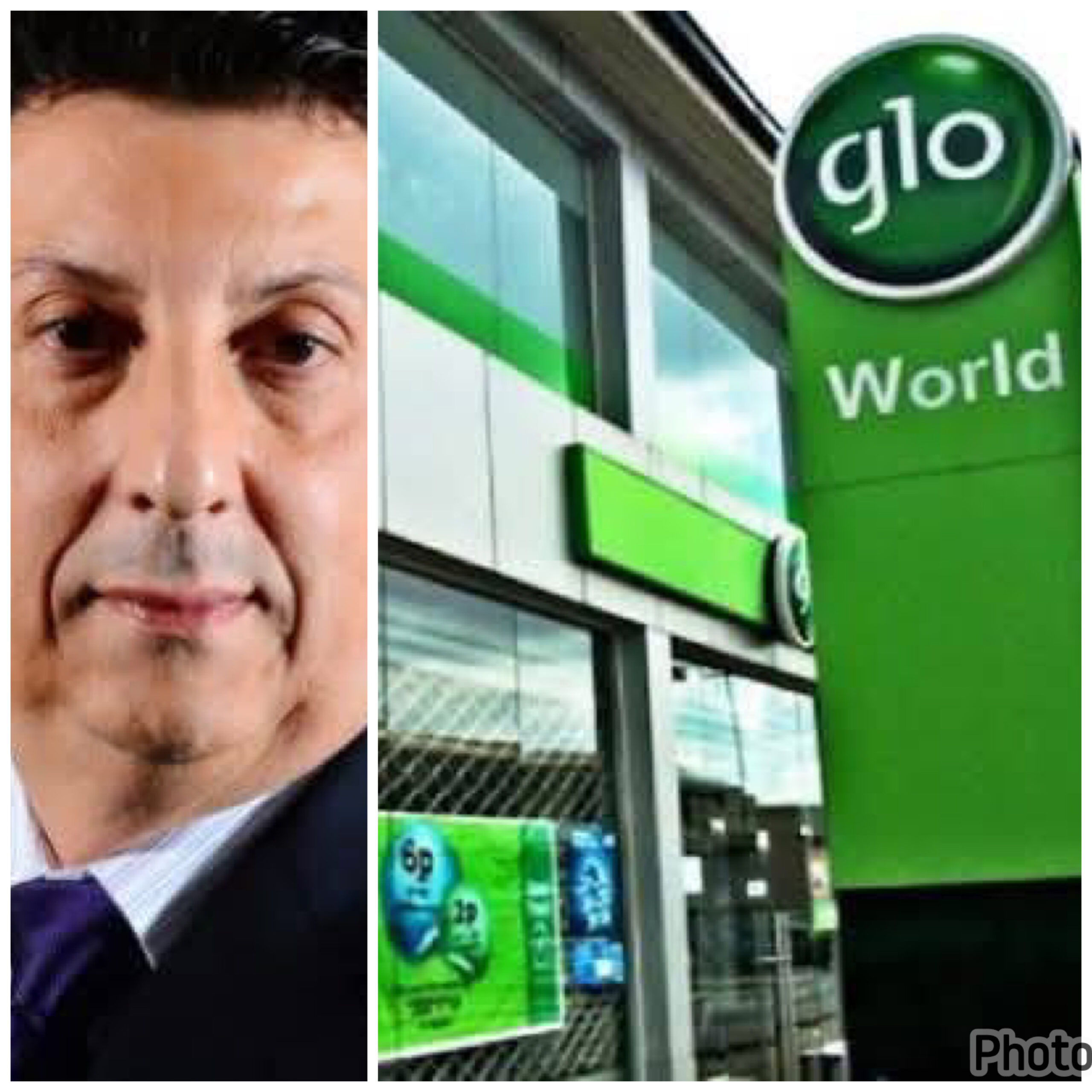

Globacom CEO Ahmad Farroukh resigns after one month amid governance challenges
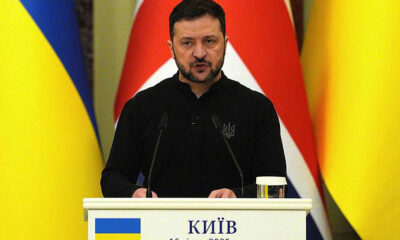

Zelensky dampens hopes Trump could strike peace deal with Putin
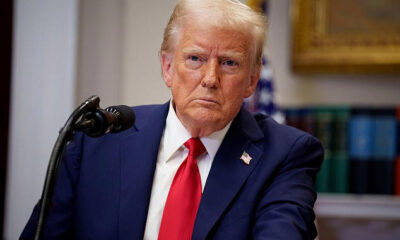

Trump orders ‘blackout’ at CDC, FDA, NIH as agencies prepare for MAGA


“I know you’re stubborn, but let it go” – Blessing CEO goes on her knees to advise Speed Darlington after regaining freedom (Video)


Residents Rush To Scoop Groundnut Oil As Another Tanker Overturns In Niger, Three Days After 98 Were Killed In Explosion.
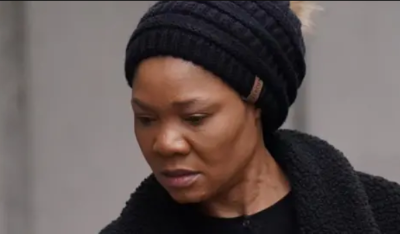

Ekweremadu’s wife returns to Nigeria after release from UK prison
Trending
Residents Rush To Scoop Groundnut Oil As Another Tanker Overturns In Niger, Three Days After 98 Were Killed In Explosion.
Published
9 hours agoon
January 22, 2025By
Ekwutos Blog
Trending videos show dozens of residents in Bida town, Niger State, collecting groundnut oil after a tanker overturned near Shafa filling station in the Esso area.
According to reports, the incident occurred on Tuesday morning, just three days after the deadly tanker explosion on Dikko-Maje Road, near Badeggi filling station in Suleja Local Government Area, which resulted in the loss of 98 lives.
Reports indicate that those gathered to collect the spilling fuel were caught in an explosion, which also impacted those trying to assist the victims.
The fire spread across a large area, leaving behind charred remains and widespread destruction.
The explosion is said to have occurred around 9:00 am while efforts were underway to transfer PMS from the overturned tanker to another vehicle.
Despite the recent tragic incident in Suleja Local Government Area, new videos from Tuesday morning show residents in Bida approaching the fallen truck with jerry cans and buckets to collect the spilled groundnut oil near a filling station in the town.
Trending
Ekweremadu’s wife returns to Nigeria after release from UK prison
Published
9 hours agoon
January 22, 2025By
Ekwutos Blog
Mrs. Beatrice Ekweremadu, wife of former Deputy Senate President, Senator Ike Ekweremadu, has returned to Nigeria, according to the Vanguard Newspaper.
It will be recalled that Senator Ekweremadu, his wife, and Dr. Obinna Obeta were sentenced by a UK court on charges related to organ harvesting.
The former Deputy Senate President was sentenced to 10 years in prison, while Mrs Ekweremadu received a six-year sentence.
Trending
Gunman opens fire on wedding guests in Kebbi, killing 9-year-old child and leaving one other injured
Published
9 hours agoon
January 22, 2025By
Ekwutos Blog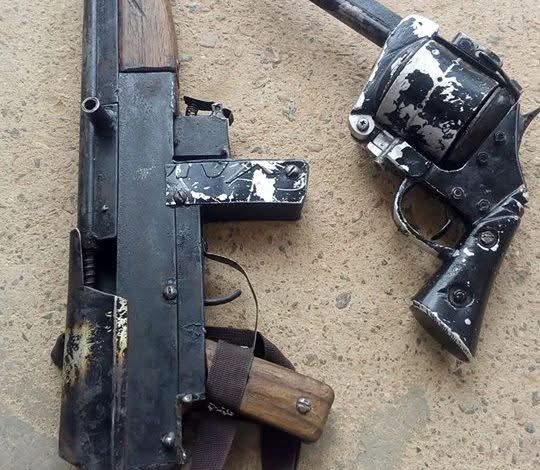
A nine-year-old child, Al’amin Garba has been killed after a man identified as Muhammad Sani opened fire at guests at a wedding ceremony in Kebbi State.
Another child, Bello Shehu who is seven years old was also said to have been injured during the attack.
The incident was said to have occurred in Koko/Besse Local Government Area of Kebbi State
While Garba died instantly from a gunshot wound in his head, Shehu sustained severe injuries to his ribs.
He has been admitted to a medical facility in the area while the shooter has been arrested.
Speaking on the incident, the commissioner of police for Kebbi command, Bello Sani condemned the incident.
He appealed to residents to submit every firearm in the possession to the police for public safety.
He also called for a thorough investigation and immediate prosecution of the shooter.

Globacom CEO Ahmad Farroukh resigns after one month amid governance challenges

Zelensky dampens hopes Trump could strike peace deal with Putin

Trump orders ‘blackout’ at CDC, FDA, NIH as agencies prepare for MAGA
Trending
- Politics11 months ago
Nigerian Senate passes Bill seeking the establishment of the South East Development Commission.

 Business11 months ago
Business11 months agoInflation hits record high of 29.90% on naira weakness

 Politics8 months ago
Politics8 months agoBREAKING: Federal Gov’t Offers To Pay Above N60,000, Reaches Agreement With Labour

 SportsNews11 months ago
SportsNews11 months agoOlympic Qualifiers 2024: CAF Confirms Dates For Super Falcons Vs Banyana Banyana

 Trending3 months ago
Trending3 months agoNYA demands release of ‘abducted’ Imo chairman, preaches good governance
- Business3 months ago
US court acquits Air Peace boss, slams Mayfield $4000 fine

 Politics11 months ago
Politics11 months agoGovernor Hope Uzodinma’s New Cabinet In Imo: The Gainers, The Losers

 Politics3 months ago
Politics3 months agoMexico’s new president causes concern just weeks before the US elections

